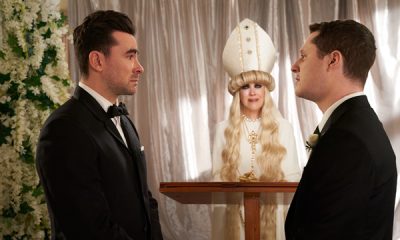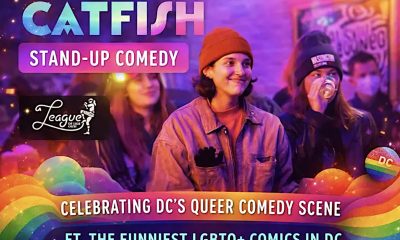Music & Concerts
Betty Who’s surprise guest wows
Kiesza performance thrills gay audience at Lincoln
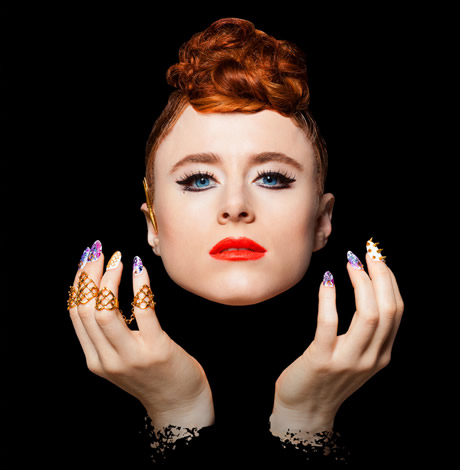
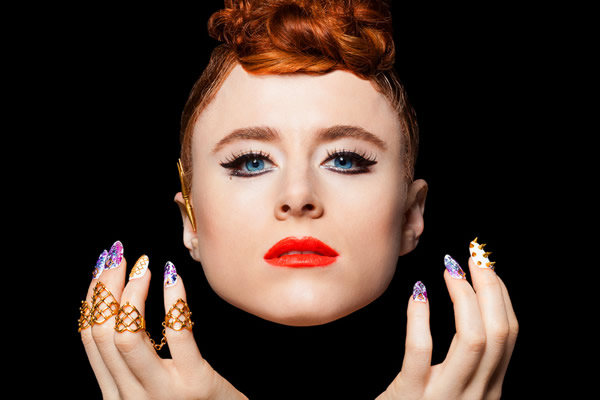
Kiesza’s performance this week in D.C. had the largely gay audience cheering for more. (Photo courtesy of Kiesza)
You can tell how good a concert is by how much energy you feel in the room.
By that logic, I was clearly at a good concert earlier this week at the Lincoln Theater, where Betty Who and Kiesza performed to a packed crowed of mostly gay men.
Everyone was on their feet in the crowded theater for the near duration of the show, with both acts lasting more than two hours combined.
Confession: I had no idea who Kiesza was before the show. I’m still not even sure I know how to pronounce her stage name. I ended up at the Lincoln Theater earlier this week after buying a last-minute ticket on Craigslist because my friend is obsessed with Betty Who and had asked me to join him.
And I wasn’t the only person there who felt that way. On our way out, someone told me that he, too, was there only for Betty Who, but that Kiesza’s performance was “10 times better.”
That might be a bit of an exaggeration: Betty Who – one of the performers at last year’s Pride Festival – killed as usual. She performed a combination of her slower numbers as well as her more campy hits many will recognize, like “High Society.”
If you’re still not sure who she is, Google “Somebody Loves You gay proposal.” A large part of the performer’s fame – and a good reason for her cult popularity within the gay community – has to do with the gay marriage proposal, gone viral via YouTube, set to her song, “Somebody Loves You.”
These days, it often goes without saying that live vocal performances are nowhere near as strong as they are on the records that buffer singers’ real pipes with heavy autotune and sound editing. But Betty Who clearly offers an anomaly to that trend: Her vocals at the show were pitch-perfect and maybe even more interesting than her records.
I had already seen Betty Who perform at Pride. But the strongest portions of her show at the Lincoln Theater had more to do with her cute commentary between songs. For instance, in one of her more somber songs, she insisted on having a “moment” with a dude in the front row. She played a game with the audience, pitting each side of the theater against the other to see which group could sing the loudest. And later on, she stole someone’s phone and took selfies with the audience.
To be honest, she’s probably too big and too talented to be someone else’s opener in D.C., a city where she regularly performs, even if she isn’t exactly a household name like other female pop stars. Or if she’s relegated to being a “special guest” instead of the name at the top of the ticket, she should perform alongside bigger names like, for example, Katy Perry, who she opened for on the Australian leg of Perry’s tour.
But as an opener, she certainly did her job: By the time she blew a kiss to the audience and bounced off stage, the vibes in the room were already palpably positive, setting the stage for a high-energy Kiesza performance.
Even if you don’t know her name, you’ll recognize her biggest hit, “Hideaway,” which recently has been both a radio hit and a gay club classic. The song is catchy at best when piped in through speakers, but seeing it performed live was a jaw-dropper. As Kiesza sung, acrobats twisted and did splits on stage – but I missed a good portion of this because I was too busy looking around the theater, lit intermittently by strobe lights. Everyone was either singing or screaming, and seemed reluctant to slowly file out of the sold-out theater after Kiesza waved goodbye.
Both artists are young – Betty Who is 23 and Kiesza is 26. Their music, performance value, and substantial vocals provide the perfect response for music snobs who insist that music is dead and today’s pop can’t compare to the likes of Madonna and others from decades ago.
We bought tickets to see Betty Who, and ended up getting more than what we paid for with both artists. I didn’t compulsively download Kiesza’s album mid-concert like my friend did, but it was definitely worth his money.
Music & Concerts
Washington chorale kicks off Christmas with vibrant program
‘Thine Own Sweet Light’ concerts planned
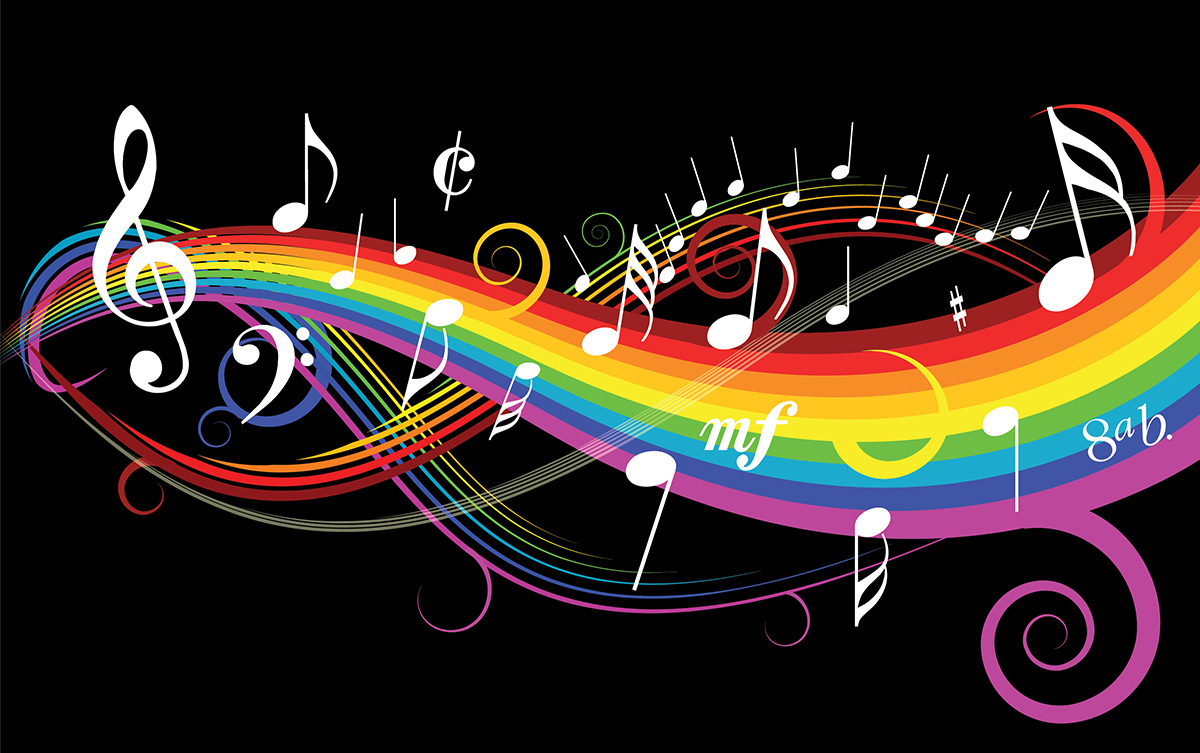
The full Washington Master Chorale will return for its annual holiday concert tradition with “Thine Own Sweet Light” on Friday, Dec. 19 and Sunday, Dec. 21 at St. Ann’s Catholic Church (D.C.) and Church of the Epiphany (D.C.).
The concert will feature the rich sounds of the 50-voice, a cappella chorus performing lush, seasonal choral music inspired by the theme of light. Highlights include Edvard Grieg’s “Ave Maris Stella,” Eric Whitacre’s “Lux Aurumque,” and Christopher Hoh’s “Holy, Holy, Holy is the Lord God of Hosts.” The program will also present a new work by Barcelona composer Josep Ollé i Sabaté, along with charming holiday folk songs and seasonal favorites.
For more details, visit the Washington Master Chorale website.
Music & Concerts
Queer mega stars (and allies) ready to take D.C. stages this fall
Watch LGBTQ icons light up stages across the DMV as they sing, dance, and drag their way through spectacular shows.
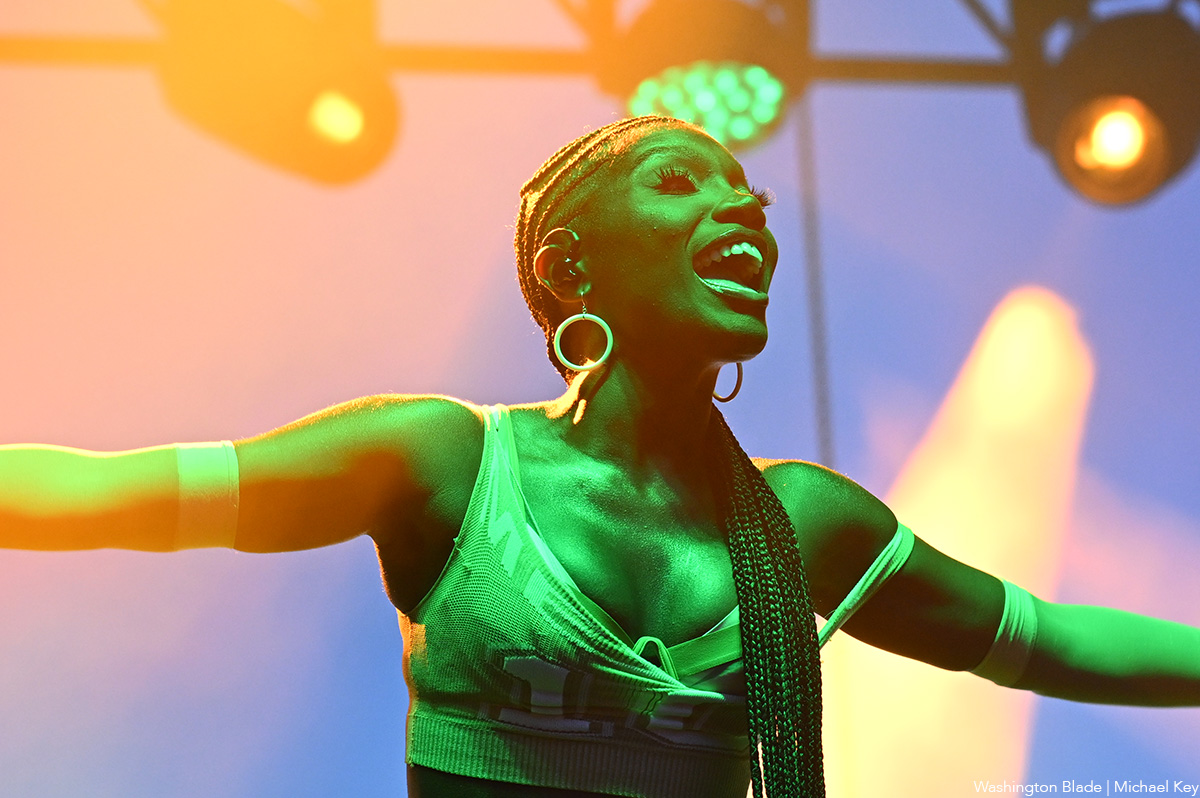
One of the best ways to welcome fall is by catching LGBTQ performers (and their allies) lighting up some of the D.C. area’s biggest stages. From country and pop to drag and rock, the season is packed with shows you won’t want to miss.
Maren Morris – The country, rock, and pop diva—known for hits like “The Bones” and for standing up against Nashville’s anti-LGBTQ voices—takes the stage at Wolf Trap (1551 Trap Rd, Vienna, Va.) on Friday, Sept. 12 at 8 p.m. Tickets start at $64.
RuPaul – The mother of modern drag and host of “RuPaul’s Drag Race” will spin a DJ set at Echostage (2135 Queens Chapel Rd NE) in Northeast D.C. on Sept. 20. Before RuPaul swaps wigs for headphones, Trade and Number 9 owner Ed Bailey will warm up the decks. For tickets and details visit echostage.com.
Conan Gray – The queer pop prince, celebrated for his Gen Z anthems like “Heather” and “Maniac,” brings his Wishbone Pajama Show to EagleBank Arena in Fairfax, VA, (4500 Patriot Cir) on Sept. 20 at 8 p.m. Tickets start at $113. For more info visit shop.conangray.com/pages/tour.
All Things Go Music Festival – With a lineup that includes Noah Kahan, Lucy Dacus, Kesha, Clairo, Doechii, and more, the beloved LGBTQ-friendly festival takes over Merriweather Post Pavilion (10475 Little Patuxent Pkwy, Columbia, Md.) Sept. 26–28. For tickets and details visit allthingsgofestival.com.
BERTHA: Grateful Drag – This unique tribute brings drag artistry and the sounds of the Grateful Dead to The Atlantis (2047 9th St NW) on Sept. 27. Tickets start at $47 at theatlantis.com.
Peach PRC – Rising Australian pop star and out lesbian, whose confessional tracks like “Perfect for You” and “Forever Drunk” have made her a queer TikTok darling, performs at The Atlantis on Sept. 29 at 6:30 p.m. The show is general admission only. Additional details are on theatlantis.com.
Addison Rae – The TikTok star-turned-pop princess, who’s crossed over into music with glossy hits like “Diet Pepsi” brings her sold out show to The Anthem (901 Wharf St., S.W.) on Sept. 30. Tickets are sold out, but resale options start around $80. For more info visit theanthemdc.com.
The Rocky Horror Picture Show 50th Anniversary – Celebrate the cult classic that’s been a queer midnight-movie staple for decades, with Barry Bostwick (a.k.a. Brad Majors) at the Warner Theatre (513 13th St., N.W.) on Oct. 2 at 8 p.m. Tickets start at $41 via Ticketmaster.
Chaka Khan, Patti LaBelle, Gladys Knight & Stephanie Mills – Four legends, one stage. Between Khan’s funk, LaBelle’s soul, Knight’s R&B, and Mills’ powerhouse vocals, this concert at Capital One Arena (601 F St NW) on Oct. 3 at 8 p.m. promises pure diva magic. Tickets start at $103. For more details visit capitalonearena.com.
Lorde – Joined by The Japanese House and Chanel Beads, the Grammy-winning New Zealand singer-songwriter behind “Royals” and “Solar Power” returns to The Anthem on Oct. 4 at 7 p.m. Lorde has long been embraced by queer fans for her dreamy pop and subversive lyrics. For more info visit theanthemdc.com.
Andy Bell (of Erasure) – The British queer rock icon, best known for synth-pop classics like “A Little Respect” and “Chains of Love,” brings his Ten Crowns Tour to the Lincoln Theatre (1215 U St., N.W.) on Friday, Oct. 17 at 8 p.m. Tickets are $90.45.
Doechii – The self-described queer “Swamp Princess”—and WorldPride 2025 headliner—continues her breakout year with the Live from the Swamp Tour at The Anthem on Oct. 21 at 8 p.m. Known for blending rap, R&B, and avant-garde performance art, Doechii is one to watch. Tickets start at $153.
Neon Trees – The out-and-proud Utah rockers behind “Everybody Talks” and “Animal” perform at the Lincoln Theatre on Friday, Oct. 24 at 8 p.m. Lead singer Tyler Glenn, who came out publicly in 2014, has become a strong queer voice in alternative rock. For tickets and info visit impconcerts.com.
Sasha Colby – The “RuPaul’s Drag Race” Season 15 winner strips down on the Stripped II Tour at the Warner Theatre on Nov. 2 at 8 p.m. Tickets available now on Ticketmaster.
Lola Young – The bisexual indie-pop sensation, whose raw songwriting has earned her millions of TikTok fans and multiple chart soaring hits visits The Anthem on Nov. 9 at 8 p.m. Tickets are still available.
Opera Lafayette
Featuring Mary Elizabeth Williams as Dido
+ Elijah McCormack, Chelsea Helm
Oct. 16, 7:30 p.m.
Sixth & I
PostClassical Ensemble
The Pale Blue Do: A Musical Voyage Inspired By Nature
Featuring National Geographic’s Enric Sala, Guest Curator
Wednesday, November 19, 7:30 p.m.
Terrace Theater
Washington Concert Opera
Starring Kate Lindsey, Theo Hoffman, John Moore, and Fran Daniel Laucerica
Nov. 23, 6 p.m.
Lisner Auditorium
Washington Master Chorale
An intimate a capella concert taking place in an architectural jewel, featuring cherished choral gems from Anglican and Catholic tradition and early American hymns. The concert will also present the world premiere of Christopher Hoh’s Holy, Holy, Holy is the Lord God of Hosts, and hymn singing featuring Robert Church, organist and choirmaster at St David’s.
Oct. 18, 7:30 p.m.
October 19, 5 p.m.
St. David’s Episcopal Church
Music & Concerts
Cyndi Lauper ready to have fun in Virginia
Superstar to bring final leg of farewell tour to Jiffy Lube Live
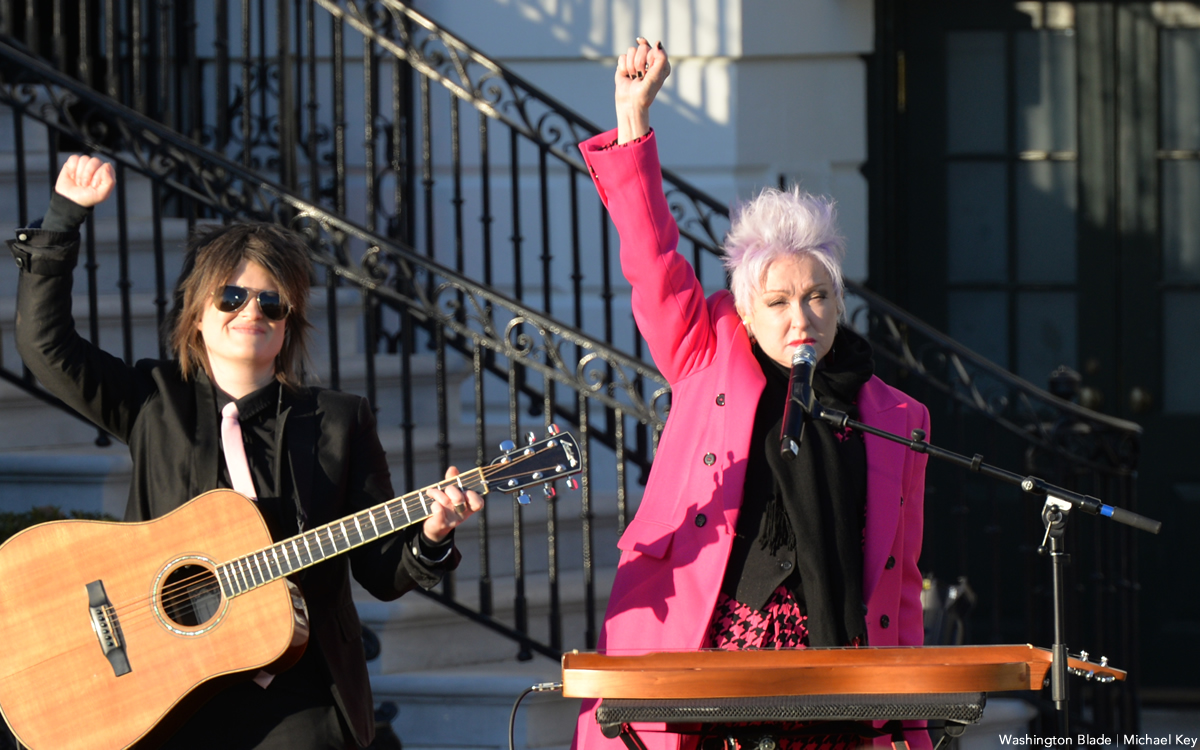
Superstar Cyndi Lauper will bring the final leg of her farewell tour “Girls Just Wanna Have Fun” to Bristow, Va., on Thursday, July 24 at Jiffy Lube Live.
Lauper’s international Farewell Tour – her first major headlining run in a decade – kicked off in North America last October, and included her first time ever headlining (and selling out) Madison Square Garden. Lauper’s performances have earned raves from the New York Times, Rolling Stone, Billboard, and many more, and surprise guests have included Chaka Khan, Sam Smith, and Hayley Williams. The tour just visited the U.K. and Europe, and will head to Australia and Japan in April.
Tickets are available on Live Nation’s website.
-

 Florida5 days ago
Florida5 days agoAIDS Healthcare Foundation sues Fla. over ‘illegal’ HIV drug program cuts
-

 Arts & Entertainment5 days ago
Arts & Entertainment5 days agoCatherine O’Hara, ‘Schitt’s Creek’ star and celebrated queer ally, dies at 71
-

 Calendar5 days ago
Calendar5 days agoCalendar: January 30-February 5
-

 Out & About4 days ago
Out & About4 days agoThis queer comedy show will warm you up
















